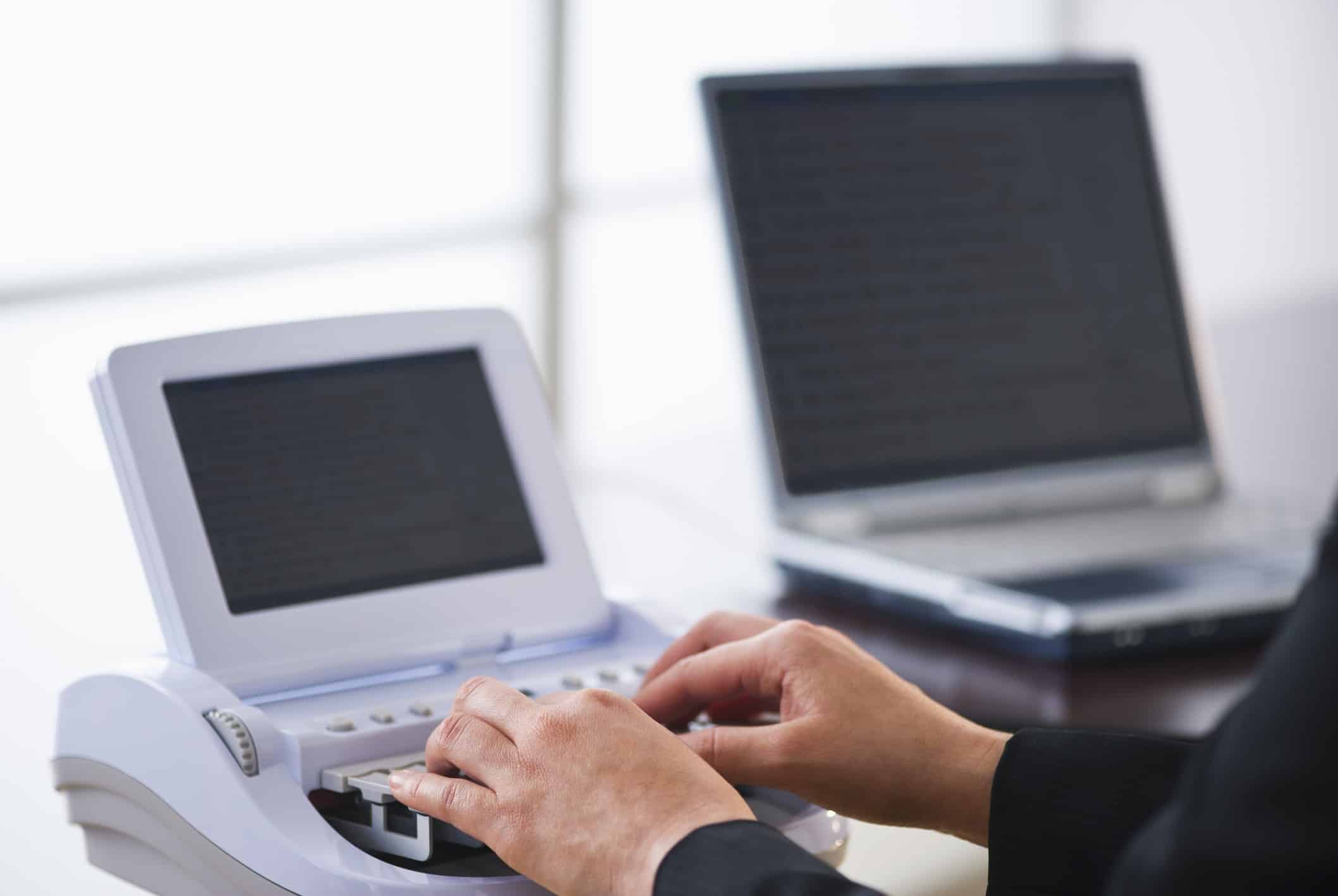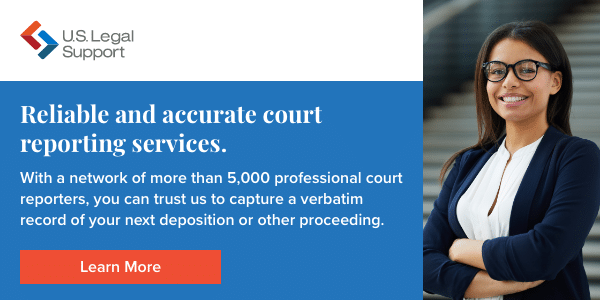What is a Stenographer?

If you’re a fan of courtroom dramas on TV, then you know that the law is a living structure, built case by case. Lawyers cite precedent (the more sensational, the better) to win controversial trials between commercial breaks.
While usually a bit more calm and drawn-out than Law & Order episodes, real criminal and civil law does rely on the outcomes of cases across the country to create effective arguments.
None of this would work without accurate transcription filed for searching, study, and reference. Stenographers are a type of court reporter who professionally capture legal proceedings and create verbatim written transcripts that are filed as official records.
How Does Stenography Work?
Stenography is the art and science of accurately capturing the spoken word. The court reporting practice has been around for millenia, always working to solve the challenge of speed.
Even with modern ergonomic laptops, the fastest typists can only enter 80 to 120 words per minute. Depending on the dialect and speaker, English is spoken between 180 and 350 words per minute.
Rather than typing down words and sentences—and never catching up with speakers—Stenographers use shorthand to quickly, and accurately, capture a verbatim record of what transpires through phonetic shorthand abbreviations.
Unlike a QWERTY keyboard on a laptop that requires a one button press per character, the smaller steno machine keyboard:
- Has fewer keys
- Can understand a single key press or multiple keys pressed simultaneously
- Uses phonetic shorthand to capture all spoken words using abbreviations instead of characters
The stenography machine, along with fluency in shorthand, allows Stenographers to capture 225 to 360 words per minute, keeping up with the spoken word.
What Do Courtroom Stenographers Do?
In addition to capturing a verbatim record, the Stenographer is also present as a court representative. Stenographers are notary publics who swear in the witness prior to giving testimony and remain engaged throughout the proceeding to capture the spoken word and attest to the accuracy of the transcription. Stenographers must be familiar with legal processes and procedures and complete extensive training in shorthand theory.
In terms of daily practice, what does a Stenographer do? A typical day may include:
- Attending legal proceedings at court or in offices for pretrial depositions
- Using a stenograph machine to capture all spoken words for the duration of the proceeding
- Ensuring the stenograph machine and its software work properly
- Connecting to output displays that show realtime captioning of the event
- Reviewing the draft transcript for any errors
- Completing the final transcript with attestation of accuracy
What Do Stenographers Do Outside the Courtroom?
Stenographic court reporters may be employed in official, hearing, or legislative roles to create transcripts in court proceedings, lawyers’ offices, or senate and congressional events across the country.
Stenographers can also take on roles to capture:
- Business meetings, particularly union, shareholder, and board of directors events
- Press conferences
- Municipal meetings and public court hearings
- Arbitration proceedings
- Conventions and special events
- Any live event that requires simultaneous captioning for deaf and HOH viewers
What Technology Is Used in Modern Court Stenography?
While steno machines were invented all the way back in 1877, they’ve come a long way since then. Cutting-edge steno machines can:
- Connect with software that transcribes the phonetic input to words
- Record back-up audio
- Generate realtime captions on monitors or for broadcast
However, what has remained largely unchanged is the unique keyboard design that captures phonetic and abbreviated keywords rather than individual characters. This is still one of the most reliable ways to keep up with the speed of spoken word.
U.S. Legal Support: Your Partner in Stenography
Since 1996, U.S. Legal Support has provided exceptional litigation support services to legal industry partners. We work with more than 5,000 professional Stenographers and court reporters across the country, and can provide exactly the services you need for remote and in-person legal proceedings. For more on how to hire a court reporter, contact us today by phone at 877.479.2484, email, or website request to get started.
Sources:
Stanley Sakai. Stan’s Quick and Dirty: How Stenography Works. https://youtu.be/62l64Acfidc
Britannica. Stenograph. https://www.britannica.com/technology/Stenograph
Stenograph. The History of Writing Machines. https://www.stenograph.com/history-writers

Editoral Policy
Content published on the U.S. Legal Support blog is reviewed by professionals in the legal and litigation support services field to help ensure accurate information. The information provided in this blog is for informational purposes only and should not be construed as legal advice for attorneys or clients.


